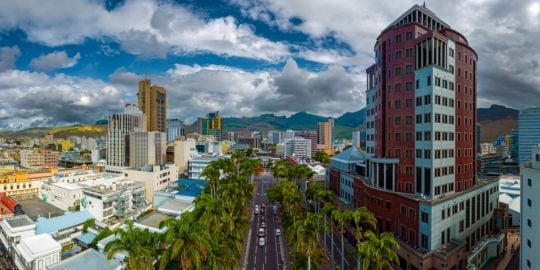AS a traveler for 35 years I have learned to judge my expenses for housing and food and other misc. purchases by what the locals are living on. What their minimum wage is and what is the average salary of the locals.
Is it true from what I have read that the average salary is 28,000 rs a month or about 800 dollars, and I have read that the minimum wage is $30 a week for unskilled workers and I am not sure what that means. And is this for a family of four or five living on these wages???? Or do both husband and wife work and perhaps the children?
I found this as a guideline http://countryeconomy.com/national-mini … /mauritius
and http://www.tradingeconomics.com/mauritius/wages
I understand that Ex pats have extra needs but I am trying to figure out the balance of the locals and the ex pat. Also I am wanting to learn about the two or three tier system that exists between what the locals will spend and what the ex pat will spend for the exact same food or product. Is it 2 times 3 times or more than the ex pat will have to spend unless they have good negotiation skills.
I am asking for those locals and expats to double check my figures compared to your experiences?
Do you negotiate prices or accept the price listed if there is a price listed or accept word of mouth prices in the wet and dry markets?
I have read the list of the cost of living in Mauritius on the forum, which I find expensive when I compare to the local living standards and salary of the locals.
Can you explain to me the difference between the pricing schedules between locals and ex pats.?
Are there ex pats there that live close or twice or three times to the living standards of the locals?
Thank you
Alex
What are the wages for locals
Hi,
'Average salary' is not a widely used economic index in Mauritius for 2 big reasons; firstly because there are many variables that come into the equation (field of employment, government or private, expat or local, skilled or non-skilled, etc) and secondly because as a society, Mauritius is an extremely complex one where family and culture come into play with significant leverage on the household budget and expenses.
Therefore, any number can be blurry here and basing your average monthly expenditures on those of locals is certainly not recommended. Your average expenditures will be influenced mainly by lifestyle choices and regulations regarding foreigners.
As you rightly mentioned, expats have extra needs but also sometimes cannot escape higher expenses when compared to locals.
Examples;
As an expat, you are likely to rent while the big majority of locals are home owners...rent is one item that is likely to inflate the monthly expenses of a foreigner.
Food: Listing of prices is mandatory by law and you will pay the same prices as a local...however should you venture into small towns and villages and shop at some small neighborhood market...all items are not necessarily listed and the seller can charge you a 'value-added' price. Not necessarily 2 or 3 times more...but such practices do exist. Same if you are buying street food where there is no regulation on prices.
Services: If you are paying a deposit for some services, you can be charged higher than a local like when renting a car, visiting an attraction or setting up an internet connection.
That's the reasons why cost of living for expat is generally listed higher than it really is for locals.
Of course, the different type of permits/visas under which expats come in to the island sometimes also have monetary benchmarks that the holders must abide to during their stay in Mauritius.
Regarding your last question, as I mentioned above, your lifestyle choices too will leave profound effects on your expenditures. Some expats do live close to what locals live while other live far beyond that. Eating at restaurants everyday, doing expensive water sports, buying imported supermarket foodstuff, playing golf at a five* resort can dig deep holes in your budget.
Hope this helps.
Hi
WinstonH Your information was very helpful, clear and insightful.
When we were in Mahebourg some 7 years ago there was a small dry market, outdoor market where bargaining for prices was normal. However for my short time there bargaining was a challenge not have a price base to work off of.
Is there some economic (unofficial) zone in Mauritius where products are brought in by bulk and sold wholesale prices from either China or India where the local merchants go and buy their products and bring it back to their stores or outdoor markets throughout the island and mark up those prices for everyone else.
Example in Bangkok Thailand - best prices are found in Chinatown, where local merchants or savvy shoppers go. In Madagascar it is a place just off Independence Ave in the Capital city Antananarivo where merchants buy from Chinese wholesalers and sell in their stores throughout the island of Madagascar.
Thank you
Alex
Hi TropicAlex,
I do know certain places where items are sold at wholesale price. Its in thr north near Riverside Complex.
Its called Mag Pooloo. You can try to find out. I Port-Louis also there are various places selling at wholesale price for different types of items. And yes, retailers buy their items their and sell them at a higher price in the shops.
Hope you find what you are searching for.
Pascal
Loads of wholesalers in Mauritius especially in the capital Port Louis...a quick online search will give you the names, addresses and contacts...
Wages in Mauritius is so disproportionate. Firstly let's start with locals. Locals earn as a minimum of Rs 5000 upwards. It is very difficult to believe that people at the day and age are earning around $150 per month.
Family Type A: Joint income of $300-$1000 per month. This family might have 1-2 children, have no mortgage, but might have a loan. They will be earning enough to eat, get basic clothing, will have no car and will have no savings. They do not go on holidays and they might only afford to go to a restaurant once every month. They are living a very simple life, where money is short, but they will have a descent living (no luxury).
Family Type B: Joint income of $1000-$2000 per month. This family will probably also have 1-2 children, may or may not have a mortgage, and might have other loans. They will be earning enough to eat well, own 1 or 2 cars, and have some savings (depends).
Family Type C: Joint income of above $2000 per months. This family will be earning a very comfortable life.
So, even though there is a massive earning gap, people at the lower scale can still eat and earn a reasonable living.
In the other hand, expats are earning more, due to shortage of certain skills and expertise and hence spend more on daily commodities and rent.









